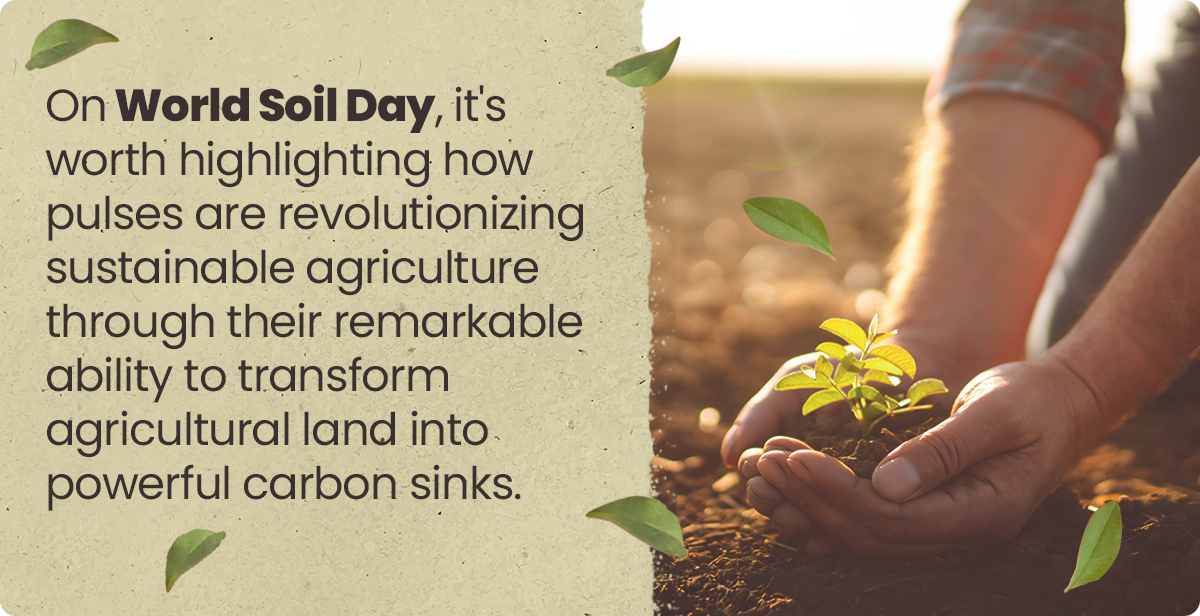December 5, 2024
On World Soil Day, it's worth highlighting how pulses are revolutionizing sustainable agriculture through their remarkable ability to transform agricultural land into powerful carbon sinks.


With climate change accelerating and global food security at risk, agriculture faces mounting pressure to reduce its environmental impact while feeding a growing population.
As World Soil Day 2024 approaches, an ancient solution is gaining new attention: pulses. These humble legumes - including lentils, peas, and beans - are emerging as powerful allies in the fight against climate change, offering a practical path to transform agricultural lands from carbon emitters into carbon sinks.
Beyond their role as a nutritious food source, pulses are proving to be remarkable climate champions, capable of revolutionizing how we think about sustainable agriculture.
The foundation of pulses' carbon-storing superpower lies in their unique symbiotic relationship with soil bacteria.
What does it mean?
Through biological nitrogen fixation, these crops partner with Rhizobium and Bradyrhizobium bacteria in the soil to convert atmospheric nitrogen into plant-available nutrients.
Why does it matter?
This natural process eliminates or dramatically reduces the need for synthetic nitrogen fertilizers, cutting greenhouse gas emissions significantly.
Pulses demonstrate exceptional carbon storage capabilities, accumulating soil carbon at higher rates than cereals or grasses, according to FAO.
What does it mean?
Their impact is substantial, increasing soil organic carbon and producing compounds that nourish soil microbes and create diverse microbial communities that naturally fight plant diseases.
Why does it matter?
Pulses increase the volume expansion, enhance the porosity and improve the water holding capacity of soils, creating optimal conditions for long-term carbon storage while building climate-resilient agricultural systems.
These crops excel in semi-arid conditions and demonstrate remarkable drought tolerance.
What does it mean?
Their efficient water usage pattern, extracting water from shallower depths, leaves deeper soil moisture for subsequent crops.
Why does it matter?
Certain types of pulses, particularly chickpeas, can be a lifeline for farmers operating in areas where water is increasingly scarce. Their lower water use compared to other protein sources (1kg of lentils requires around 5 liters of water to produce, compared to 1kg of beef, which requires 15 liters), makes pulses a no-brainer when it comes to increasing water efficiency in food production.
This World Soil Day, pulses showcase how agriculture can evolve from being a carbon source to becoming a crucial part of the climate solution. Through their remarkable properties and multiple benefits to soil health, these crops demonstrate that the path to sustainable farming lies in working with nature's own systems.

World Soil Day / pulses / beans / lentils / peas / carbon sink / climate change mitigation / sustainable agriculture / nitrogen fixation / fertilizer / emissions reduction / pulses crops
Disclaimer: The opinions or views expressed in this publication are those of the authors or quoted persons. They do not purport to reflect the opinions or views of the Global Pulse Confederation or its members.